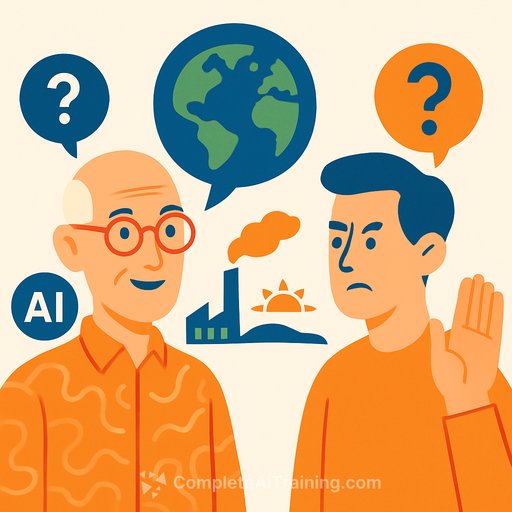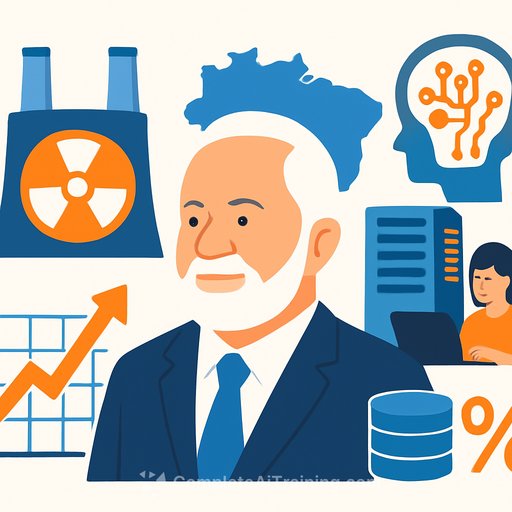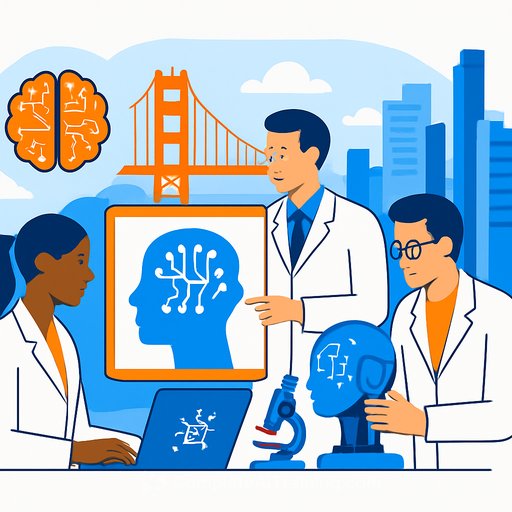Can an AI Chatbot of Dr Karl Change Climate Skeptics’ Minds? He’s Willing to Give It a Try
Dr Karl Kruszelnicki is a familiar name in Australian science communication, known for his passionate answers to complex scientific questions over the past four decades. At 77, he faces a new challenge: the flood of climate change questions arriving nonstop on social media. “Sometimes, I get 300 requests a day on Twitter to answer an involved question about climate change,” he says.
Many of these questions come from climate skeptics, a group heavily influenced by misinformation over the last 30 years. To engage this audience more effectively, Dr Karl teamed up with technology journalist Leigh Stark to create a chatbot — a digital version of himself powered by AI. This chatbot uses a large language model (LLM) to provide evidence-based answers about human-driven climate change, backed by reliable sources.
Why a Digital Dr Karl?
Dr Karl’s decades of experience and trusted reputation are hard to replicate, but he acknowledges he can’t personally answer every question anymore. “The only way I can do it is develop this digital AI,” he explains. The AI chatbot is trained on a vast library of climate science materials Dr Karl has collected over 40 years, including academic papers and articles from reputable publications like the New York Times and The Guardian.
Dr Karl’s credentials are noteworthy — he is a National Living Treasure in Australia, a Unesco Kalinga Prize winner, and has been the Julius Sumner Miller Fellow at the University of Sydney since 1993. Despite concerns about AI’s ethical use, data accuracy, and environmental impact, he believes that “with climate change, we are at a stage where the perfect is the enemy of the good.”
How Digital Dr Karl Works
The chatbot operates on an open-source LLM from French company Mistral, a competitor to major players like OpenAI. Leigh Stark customized the base model by feeding it Dr Karl’s extensive climate science research. This includes about 40,000 PDFs collected over decades, ensuring the AI has a deep well of trustworthy information.
During a demonstration, when asked if “climate change is a hoax,” Digital Dr Karl responded by engaging the user and citing credible sources like Barack Obama’s statements and atmospheric carbon dioxide data. The AI can display graphs and scientific data, although it sometimes produces inconsistent tone or “hallucinated” numbers — a known issue with current AI models. The team describes the chatbot as an “alpha” and “beta” hybrid, with improvements underway before its planned release in October.
Dr Karl has personally invested $20,000 in this project since February, driven by a sense of responsibility and gratitude for his free university education.
Testing and Impact
The plan is to run Digital Dr Karl for 100 days, accompanied by daily TikTok videos directing people to the chatbot. Afterward, the team will assess its effectiveness in shifting public opinion on climate change. Stark says, “We’ll work out what the fuck just happened,” acknowledging the experimental nature of this approach.
Research supports the idea that AI chatbots can influence beliefs. A 2024 Science journal study found that chatbot conversations reduced belief in conspiracy theories by about 20%, with effects lasting two months. The key is the interactive, reasoned dialogue AI enables, which helps clarify disagreements and foster openness. Another study, yet to be peer-reviewed, shows similar promise in addressing climate skepticism through AI tailored to user concerns.
Challenges and Sustainability
Despite the potential, Digital Dr Karl faces common challenges of LLMs, including accuracy and ethical concerns. To address environmental impact, Dr Karl plans to power the chatbot’s website entirely with solar energy. Stark runs the AI on a modest $12,000 Mac, showing it can function with relatively low energy consumption, especially if scaled with renewable power sources.
User volume could strain resources, with expectations of up to 2,500 simultaneous users. The team will monitor responses closely and is prepared to shut down the AI if it produces problematic outputs.
Looking Ahead
This project represents a practical experiment in using AI to engage climate skeptics with science-based dialogue. Whether Digital Dr Karl will change minds remains to be seen, but the effort highlights how AI can complement human expertise in communicating complex scientific issues.
For those interested in AI’s role in science communication or climate education, exploring AI training and courses can provide valuable insights. Platforms like Complete AI Training offer resources on AI applications and ethics that are relevant for researchers and communicators alike.
Your membership also unlocks:






